Africa · Attractions · Going Out · Malawi · Regions
Lake Malawi – the jewel in Malawi’s crown
Having given an overview of Malawi’s unique variety of attractions in last month’s blog (lake, landscape, wildlife and culture), this month we will focus in on what is probably the best known: Lake Malawi. Widely viewed as Malawi’s primary tourism asset and also known as the Lake of Stars, Lake Malawi is a wondrous inland sea of crystal-clear waters fringed by beaches of golden sand.
 A shimmering jewel in the crown of one of the most naturally beautiful corners of Southern Africa, Lake Malawi’s great expanse of fresh water stretches across approximated one fifth of the country, providing in many ways the lifeblood of this tiny nation. Ebbing and flowing into every part of Malawian life, the Lake brings sustenance, livelihood, tourism and leisure and forms an integral part of Malawi’s cultural heritage. Sometimes known as the ‘Calendar Lake’ because it is 365 miles long and 52 miles wide (i.e. number of days in a year by the number of weeks in a year) and easily qualifying as an inland sea, Lake Malawi also borders Mozambique and Tanzania where it is known as Lake Nyassa.
A shimmering jewel in the crown of one of the most naturally beautiful corners of Southern Africa, Lake Malawi’s great expanse of fresh water stretches across approximated one fifth of the country, providing in many ways the lifeblood of this tiny nation. Ebbing and flowing into every part of Malawian life, the Lake brings sustenance, livelihood, tourism and leisure and forms an integral part of Malawi’s cultural heritage. Sometimes known as the ‘Calendar Lake’ because it is 365 miles long and 52 miles wide (i.e. number of days in a year by the number of weeks in a year) and easily qualifying as an inland sea, Lake Malawi also borders Mozambique and Tanzania where it is known as Lake Nyassa.
 The Lake Malawi National Park is the world’s first freshwater national park. The aquatic wonderland at Cape Maclear and its surrounding areas has earned a UNESCO World Heritage Site status, which encompasses the land around the cape and bay, as well as the Lake and a number of islands off shore.
Swimming with the fish is a favourite pastime in Lake Malawi; dubbed ‘God’s Aquarium’ it offers an incredible kaleidoscopic display of spectacular coloured tropical fish. The lake is home to almost 1000 species of fish around 80% of which cannot be found in any other lake in the world. The Cichlidae (cichlids) dominate and the lake which is said to contain over thirty per cent of all known cichlid species. Among these are the small highly coloured mbuna rock fish which frequently grace the aquariums of many a home in the western world. The abundant fish populations have made the lake a global ‘hot-spot’ for studies of biodiversity, and it is also widely recognised as one of the best freshwater diving locations in the world with visibility reaching 30m at the best times of year (August to December).
The Lake Malawi National Park is the world’s first freshwater national park. The aquatic wonderland at Cape Maclear and its surrounding areas has earned a UNESCO World Heritage Site status, which encompasses the land around the cape and bay, as well as the Lake and a number of islands off shore.
Swimming with the fish is a favourite pastime in Lake Malawi; dubbed ‘God’s Aquarium’ it offers an incredible kaleidoscopic display of spectacular coloured tropical fish. The lake is home to almost 1000 species of fish around 80% of which cannot be found in any other lake in the world. The Cichlidae (cichlids) dominate and the lake which is said to contain over thirty per cent of all known cichlid species. Among these are the small highly coloured mbuna rock fish which frequently grace the aquariums of many a home in the western world. The abundant fish populations have made the lake a global ‘hot-spot’ for studies of biodiversity, and it is also widely recognised as one of the best freshwater diving locations in the world with visibility reaching 30m at the best times of year (August to December).
 Lake Malawi’s clear, calm, warm, shark-free and tideless waters provide an opportunity for almost any water sport and the beautiful palm fringed shores and immaculate beaches make it a magnet for those seeking an all-year round location to swim, scuba dive, snorkel, water-ski, sail, kayak, parasail or simply potter about in boats, and the salt-free water is a bonus. Some of the best diving is available in the waters of the Lake Malawi National Park at Cape Maclear to the south, but there are a handful more dive schools dotted along the Lake’s shore. One to six-day courses are available with professional tuition and PADI or NAUI certification. Alternatively, sailing tours can be taken to incorporate day or night dives.
Lake Malawi’s clear, calm, warm, shark-free and tideless waters provide an opportunity for almost any water sport and the beautiful palm fringed shores and immaculate beaches make it a magnet for those seeking an all-year round location to swim, scuba dive, snorkel, water-ski, sail, kayak, parasail or simply potter about in boats, and the salt-free water is a bonus. Some of the best diving is available in the waters of the Lake Malawi National Park at Cape Maclear to the south, but there are a handful more dive schools dotted along the Lake’s shore. One to six-day courses are available with professional tuition and PADI or NAUI certification. Alternatively, sailing tours can be taken to incorporate day or night dives.
 Offering a rich fish harvest, the Lake plays an important part in the economy. Fishing villages are scattered along the shore and the traditional industry and practices are also an attraction to visitors. As well as being able to visit the villages and experience the friendly cultural interaction for which Malawi is famed, visitors can also try their hand at fishing if they wish.
Offering a rich fish harvest, the Lake plays an important part in the economy. Fishing villages are scattered along the shore and the traditional industry and practices are also an attraction to visitors. As well as being able to visit the villages and experience the friendly cultural interaction for which Malawi is famed, visitors can also try their hand at fishing if they wish.
 For sailing enthusiasts, the Lake Malawi Yachting Marathon takes places annually in July. Described as the longest freshwater yachting race in the world (over 500km), this event is not for the faint-hearted sailor. It is during July that the mwera blows strongest up Lake Malawi from Mozambique, creating some rough water and challenging conditions. The event is popular with yachts and crews in southern Africa and has attracted international entrants in some years. Starting at one of the resorts on the southern lakeshore, the event takes entrants northwards over a number of days.
For sailing enthusiasts, the Lake Malawi Yachting Marathon takes places annually in July. Described as the longest freshwater yachting race in the world (over 500km), this event is not for the faint-hearted sailor. It is during July that the mwera blows strongest up Lake Malawi from Mozambique, creating some rough water and challenging conditions. The event is popular with yachts and crews in southern Africa and has attracted international entrants in some years. Starting at one of the resorts on the southern lakeshore, the event takes entrants northwards over a number of days.
 Many of Malawi’s most high profile events take place on the Lake’s palm fringed shores, including the Lake of Stars – an internationally renowned music & arts festival which now forms part of the global festival circuit. Lake of Stars has been going for over 15 years and this year will run as a boutique festival on the lakeshore in North Malawi from 27 to 29 September.
There is a good range of accommodation along the lakeshore, with excellent lodges expertly placed for guests to enjoy the areas of outstanding natural beauty. Between Mangochi and Monkey Bay is a long line of wonderful beaches with a wide variety of accommodation. The Mangochi Lakeshore has the Lake’s largest concentration of lodges and hotels, varying from sophisticated properties, with golf course and airstrip, to more simple resorts. Best known is the long established and ever impressive Makokola Retreat, with Zaburi Beach by Serendib a very welcome new addition to this stretch. For a more intimate place to stay, Norman Car Cottage nearer to Monkey Bay is a charming family-run lodge.
Many of Malawi’s most high profile events take place on the Lake’s palm fringed shores, including the Lake of Stars – an internationally renowned music & arts festival which now forms part of the global festival circuit. Lake of Stars has been going for over 15 years and this year will run as a boutique festival on the lakeshore in North Malawi from 27 to 29 September.
There is a good range of accommodation along the lakeshore, with excellent lodges expertly placed for guests to enjoy the areas of outstanding natural beauty. Between Mangochi and Monkey Bay is a long line of wonderful beaches with a wide variety of accommodation. The Mangochi Lakeshore has the Lake’s largest concentration of lodges and hotels, varying from sophisticated properties, with golf course and airstrip, to more simple resorts. Best known is the long established and ever impressive Makokola Retreat, with Zaburi Beach by Serendib a very welcome new addition to this stretch. For a more intimate place to stay, Norman Car Cottage nearer to Monkey Bay is a charming family-run lodge.
 Cape Maclear and the Lake Malawi National Park boast an excellent choice of accommodation including two on deserted tropical islands: Mumbo and Domwe, the luxurious Pumulani by Robin Pope Safaris and the great value Warm Heart Adventure Lodge. Most accommodation gives very easy access to the beaches and offers a wide range of activities on the Lake.
Cape Maclear and the Lake Malawi National Park boast an excellent choice of accommodation including two on deserted tropical islands: Mumbo and Domwe, the luxurious Pumulani by Robin Pope Safaris and the great value Warm Heart Adventure Lodge. Most accommodation gives very easy access to the beaches and offers a wide range of activities on the Lake.
 Senga Bay is another place where there are a number of good lodges and hotels, and it benefits from being the closest point on the lake to Lilongwe. Serendib has two more beach hotels here: Kambiri Beach and Blue Waters, with Kumbali Lake Retreat (sister property of Kumbali Country Lodge in Lilongwe) the pick of the smaller lodges. Blue Zebra Island Lodge is an idyllic retreat on its own island just off shore.
The stretch of Lakeshore between the historic Nkhotakota and the sugar estate town of Dwangwa has a smattering of lodges, with the best being the northernmost, Ngala Beach Lodge.
Senga Bay is another place where there are a number of good lodges and hotels, and it benefits from being the closest point on the lake to Lilongwe. Serendib has two more beach hotels here: Kambiri Beach and Blue Waters, with Kumbali Lake Retreat (sister property of Kumbali Country Lodge in Lilongwe) the pick of the smaller lodges. Blue Zebra Island Lodge is an idyllic retreat on its own island just off shore.
The stretch of Lakeshore between the historic Nkhotakota and the sugar estate town of Dwangwa has a smattering of lodges, with the best being the northernmost, Ngala Beach Lodge.
 Another concentration of accommodation is found on the Chintheche lakeshore, which has some stunning beaches. Chintheche Inn, run by Central African Wilderness Safaris, has had some exciting new developments this year and family-run Makuzi Beach remains as popular as ever. For large families or small groups, The Beach House offers an opportunity to occupy an entire house, whilst The Stables Guesthouse at Kande Horse is set back from the beaches and, unsurprisingly, concentrates on horse riding experiences.
Venturing across Lake Malawi, Likoma Island has the Lake’s best known and most luxurious lodge, Kaya Mawa, as well as being the main access point to get to the barefoot luxury of Nkwichi Lodge in the Manda Wilderness area on the Mozambiquan shores of the Lake.
Another concentration of accommodation is found on the Chintheche lakeshore, which has some stunning beaches. Chintheche Inn, run by Central African Wilderness Safaris, has had some exciting new developments this year and family-run Makuzi Beach remains as popular as ever. For large families or small groups, The Beach House offers an opportunity to occupy an entire house, whilst The Stables Guesthouse at Kande Horse is set back from the beaches and, unsurprisingly, concentrates on horse riding experiences.
Venturing across Lake Malawi, Likoma Island has the Lake’s best known and most luxurious lodge, Kaya Mawa, as well as being the main access point to get to the barefoot luxury of Nkwichi Lodge in the Manda Wilderness area on the Mozambiquan shores of the Lake.
 Whether guests choose a stay that is relaxed, or action packed, Lake Malawi has a huge amount to offer any visitor to Malawi. This immense and beautiful ‘Lake of Stars’ that entranced the explorer David Livingstone over 150 years ago has lost none of its allure, and the impressive hotels and lodges now dotted along its shore make it all the easier to succumb to Lake Malawi’s charms in wonderful, relaxed comfort.
Kelly White is Director of the Malawi Travel Marketing Consortium. Malawi Travel Marketing Consortium aims to provide you with the best information to make Malawi your tourism destination.
If you would like to be a guest blogger on A Luxury Travel Blog in order to raise your profile, please contact us.
Whether guests choose a stay that is relaxed, or action packed, Lake Malawi has a huge amount to offer any visitor to Malawi. This immense and beautiful ‘Lake of Stars’ that entranced the explorer David Livingstone over 150 years ago has lost none of its allure, and the impressive hotels and lodges now dotted along its shore make it all the easier to succumb to Lake Malawi’s charms in wonderful, relaxed comfort.
Kelly White is Director of the Malawi Travel Marketing Consortium. Malawi Travel Marketing Consortium aims to provide you with the best information to make Malawi your tourism destination.
If you would like to be a guest blogger on A Luxury Travel Blog in order to raise your profile, please contact us.
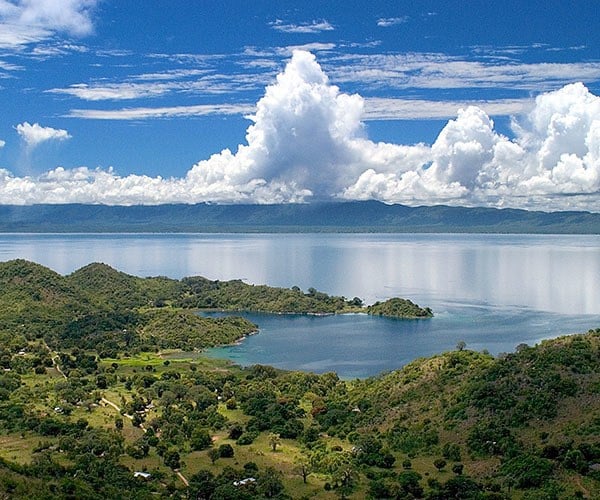 A shimmering jewel in the crown of one of the most naturally beautiful corners of Southern Africa, Lake Malawi’s great expanse of fresh water stretches across approximated one fifth of the country, providing in many ways the lifeblood of this tiny nation. Ebbing and flowing into every part of Malawian life, the Lake brings sustenance, livelihood, tourism and leisure and forms an integral part of Malawi’s cultural heritage. Sometimes known as the ‘Calendar Lake’ because it is 365 miles long and 52 miles wide (i.e. number of days in a year by the number of weeks in a year) and easily qualifying as an inland sea, Lake Malawi also borders Mozambique and Tanzania where it is known as Lake Nyassa.
A shimmering jewel in the crown of one of the most naturally beautiful corners of Southern Africa, Lake Malawi’s great expanse of fresh water stretches across approximated one fifth of the country, providing in many ways the lifeblood of this tiny nation. Ebbing and flowing into every part of Malawian life, the Lake brings sustenance, livelihood, tourism and leisure and forms an integral part of Malawi’s cultural heritage. Sometimes known as the ‘Calendar Lake’ because it is 365 miles long and 52 miles wide (i.e. number of days in a year by the number of weeks in a year) and easily qualifying as an inland sea, Lake Malawi also borders Mozambique and Tanzania where it is known as Lake Nyassa.
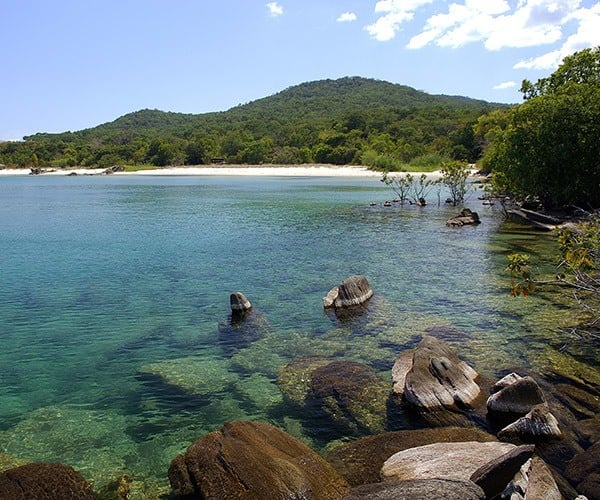 The Lake Malawi National Park is the world’s first freshwater national park. The aquatic wonderland at Cape Maclear and its surrounding areas has earned a UNESCO World Heritage Site status, which encompasses the land around the cape and bay, as well as the Lake and a number of islands off shore.
Swimming with the fish is a favourite pastime in Lake Malawi; dubbed ‘God’s Aquarium’ it offers an incredible kaleidoscopic display of spectacular coloured tropical fish. The lake is home to almost 1000 species of fish around 80% of which cannot be found in any other lake in the world. The Cichlidae (cichlids) dominate and the lake which is said to contain over thirty per cent of all known cichlid species. Among these are the small highly coloured mbuna rock fish which frequently grace the aquariums of many a home in the western world. The abundant fish populations have made the lake a global ‘hot-spot’ for studies of biodiversity, and it is also widely recognised as one of the best freshwater diving locations in the world with visibility reaching 30m at the best times of year (August to December).
The Lake Malawi National Park is the world’s first freshwater national park. The aquatic wonderland at Cape Maclear and its surrounding areas has earned a UNESCO World Heritage Site status, which encompasses the land around the cape and bay, as well as the Lake and a number of islands off shore.
Swimming with the fish is a favourite pastime in Lake Malawi; dubbed ‘God’s Aquarium’ it offers an incredible kaleidoscopic display of spectacular coloured tropical fish. The lake is home to almost 1000 species of fish around 80% of which cannot be found in any other lake in the world. The Cichlidae (cichlids) dominate and the lake which is said to contain over thirty per cent of all known cichlid species. Among these are the small highly coloured mbuna rock fish which frequently grace the aquariums of many a home in the western world. The abundant fish populations have made the lake a global ‘hot-spot’ for studies of biodiversity, and it is also widely recognised as one of the best freshwater diving locations in the world with visibility reaching 30m at the best times of year (August to December).
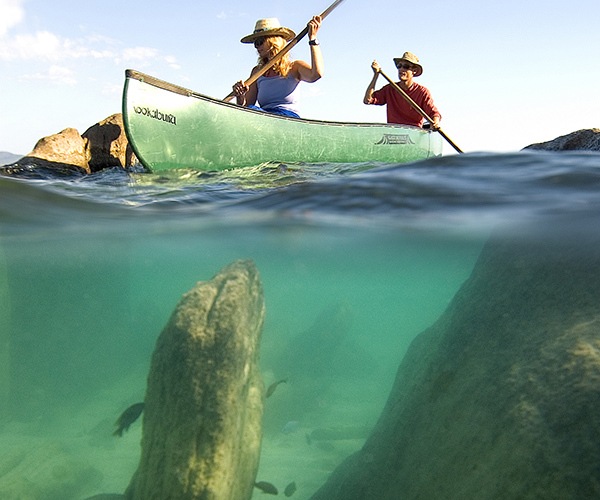 Lake Malawi’s clear, calm, warm, shark-free and tideless waters provide an opportunity for almost any water sport and the beautiful palm fringed shores and immaculate beaches make it a magnet for those seeking an all-year round location to swim, scuba dive, snorkel, water-ski, sail, kayak, parasail or simply potter about in boats, and the salt-free water is a bonus. Some of the best diving is available in the waters of the Lake Malawi National Park at Cape Maclear to the south, but there are a handful more dive schools dotted along the Lake’s shore. One to six-day courses are available with professional tuition and PADI or NAUI certification. Alternatively, sailing tours can be taken to incorporate day or night dives.
Lake Malawi’s clear, calm, warm, shark-free and tideless waters provide an opportunity for almost any water sport and the beautiful palm fringed shores and immaculate beaches make it a magnet for those seeking an all-year round location to swim, scuba dive, snorkel, water-ski, sail, kayak, parasail or simply potter about in boats, and the salt-free water is a bonus. Some of the best diving is available in the waters of the Lake Malawi National Park at Cape Maclear to the south, but there are a handful more dive schools dotted along the Lake’s shore. One to six-day courses are available with professional tuition and PADI or NAUI certification. Alternatively, sailing tours can be taken to incorporate day or night dives.
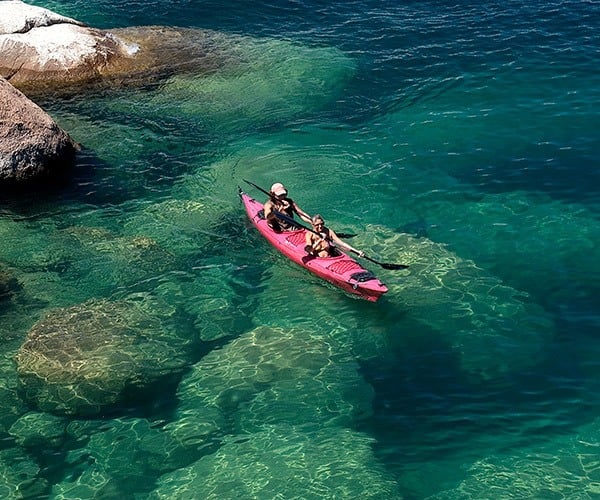 Offering a rich fish harvest, the Lake plays an important part in the economy. Fishing villages are scattered along the shore and the traditional industry and practices are also an attraction to visitors. As well as being able to visit the villages and experience the friendly cultural interaction for which Malawi is famed, visitors can also try their hand at fishing if they wish.
Offering a rich fish harvest, the Lake plays an important part in the economy. Fishing villages are scattered along the shore and the traditional industry and practices are also an attraction to visitors. As well as being able to visit the villages and experience the friendly cultural interaction for which Malawi is famed, visitors can also try their hand at fishing if they wish.
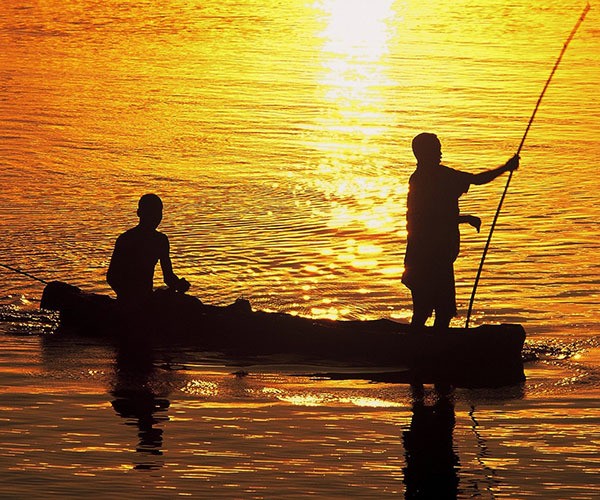 For sailing enthusiasts, the Lake Malawi Yachting Marathon takes places annually in July. Described as the longest freshwater yachting race in the world (over 500km), this event is not for the faint-hearted sailor. It is during July that the mwera blows strongest up Lake Malawi from Mozambique, creating some rough water and challenging conditions. The event is popular with yachts and crews in southern Africa and has attracted international entrants in some years. Starting at one of the resorts on the southern lakeshore, the event takes entrants northwards over a number of days.
For sailing enthusiasts, the Lake Malawi Yachting Marathon takes places annually in July. Described as the longest freshwater yachting race in the world (over 500km), this event is not for the faint-hearted sailor. It is during July that the mwera blows strongest up Lake Malawi from Mozambique, creating some rough water and challenging conditions. The event is popular with yachts and crews in southern Africa and has attracted international entrants in some years. Starting at one of the resorts on the southern lakeshore, the event takes entrants northwards over a number of days.
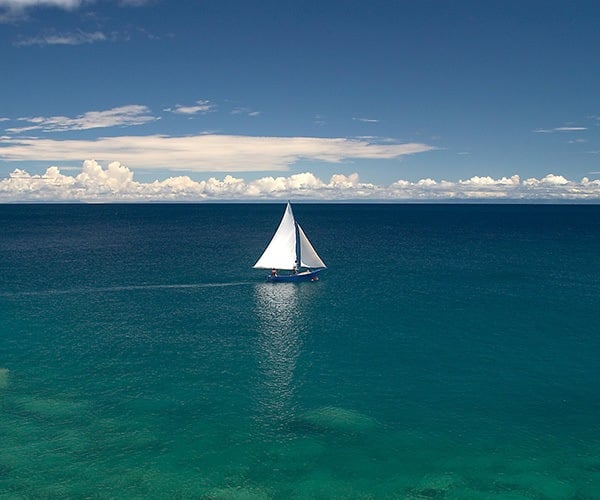 Many of Malawi’s most high profile events take place on the Lake’s palm fringed shores, including the Lake of Stars – an internationally renowned music & arts festival which now forms part of the global festival circuit. Lake of Stars has been going for over 15 years and this year will run as a boutique festival on the lakeshore in North Malawi from 27 to 29 September.
There is a good range of accommodation along the lakeshore, with excellent lodges expertly placed for guests to enjoy the areas of outstanding natural beauty. Between Mangochi and Monkey Bay is a long line of wonderful beaches with a wide variety of accommodation. The Mangochi Lakeshore has the Lake’s largest concentration of lodges and hotels, varying from sophisticated properties, with golf course and airstrip, to more simple resorts. Best known is the long established and ever impressive Makokola Retreat, with Zaburi Beach by Serendib a very welcome new addition to this stretch. For a more intimate place to stay, Norman Car Cottage nearer to Monkey Bay is a charming family-run lodge.
Many of Malawi’s most high profile events take place on the Lake’s palm fringed shores, including the Lake of Stars – an internationally renowned music & arts festival which now forms part of the global festival circuit. Lake of Stars has been going for over 15 years and this year will run as a boutique festival on the lakeshore in North Malawi from 27 to 29 September.
There is a good range of accommodation along the lakeshore, with excellent lodges expertly placed for guests to enjoy the areas of outstanding natural beauty. Between Mangochi and Monkey Bay is a long line of wonderful beaches with a wide variety of accommodation. The Mangochi Lakeshore has the Lake’s largest concentration of lodges and hotels, varying from sophisticated properties, with golf course and airstrip, to more simple resorts. Best known is the long established and ever impressive Makokola Retreat, with Zaburi Beach by Serendib a very welcome new addition to this stretch. For a more intimate place to stay, Norman Car Cottage nearer to Monkey Bay is a charming family-run lodge.
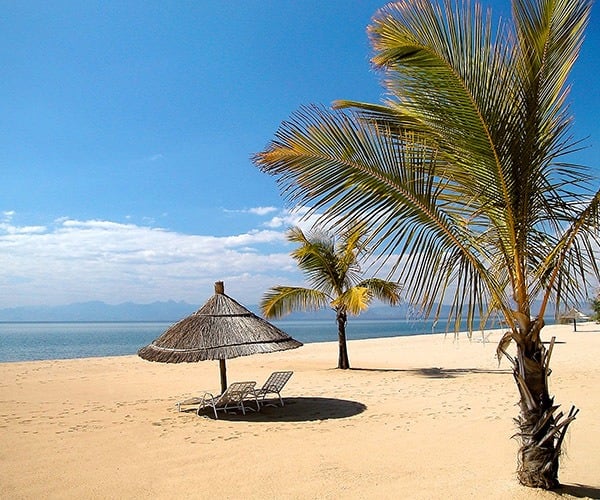 Cape Maclear and the Lake Malawi National Park boast an excellent choice of accommodation including two on deserted tropical islands: Mumbo and Domwe, the luxurious Pumulani by Robin Pope Safaris and the great value Warm Heart Adventure Lodge. Most accommodation gives very easy access to the beaches and offers a wide range of activities on the Lake.
Cape Maclear and the Lake Malawi National Park boast an excellent choice of accommodation including two on deserted tropical islands: Mumbo and Domwe, the luxurious Pumulani by Robin Pope Safaris and the great value Warm Heart Adventure Lodge. Most accommodation gives very easy access to the beaches and offers a wide range of activities on the Lake.
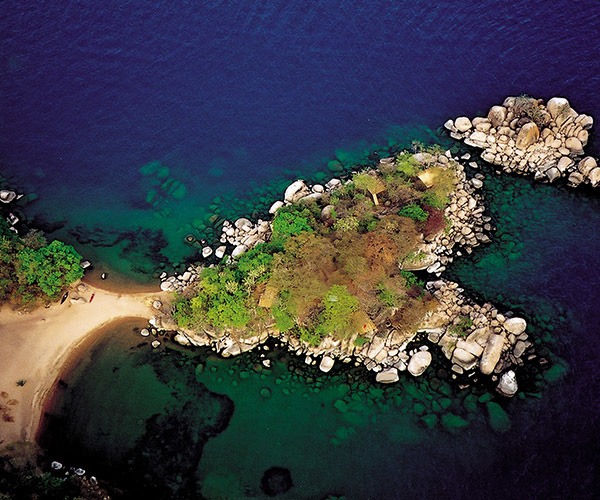 Senga Bay is another place where there are a number of good lodges and hotels, and it benefits from being the closest point on the lake to Lilongwe. Serendib has two more beach hotels here: Kambiri Beach and Blue Waters, with Kumbali Lake Retreat (sister property of Kumbali Country Lodge in Lilongwe) the pick of the smaller lodges. Blue Zebra Island Lodge is an idyllic retreat on its own island just off shore.
The stretch of Lakeshore between the historic Nkhotakota and the sugar estate town of Dwangwa has a smattering of lodges, with the best being the northernmost, Ngala Beach Lodge.
Senga Bay is another place where there are a number of good lodges and hotels, and it benefits from being the closest point on the lake to Lilongwe. Serendib has two more beach hotels here: Kambiri Beach and Blue Waters, with Kumbali Lake Retreat (sister property of Kumbali Country Lodge in Lilongwe) the pick of the smaller lodges. Blue Zebra Island Lodge is an idyllic retreat on its own island just off shore.
The stretch of Lakeshore between the historic Nkhotakota and the sugar estate town of Dwangwa has a smattering of lodges, with the best being the northernmost, Ngala Beach Lodge.
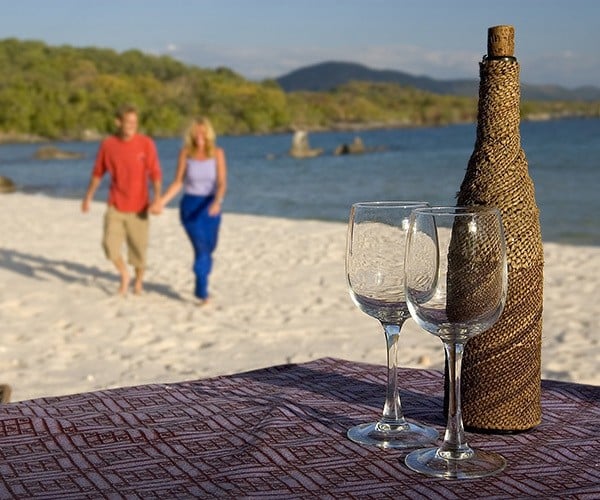 Another concentration of accommodation is found on the Chintheche lakeshore, which has some stunning beaches. Chintheche Inn, run by Central African Wilderness Safaris, has had some exciting new developments this year and family-run Makuzi Beach remains as popular as ever. For large families or small groups, The Beach House offers an opportunity to occupy an entire house, whilst The Stables Guesthouse at Kande Horse is set back from the beaches and, unsurprisingly, concentrates on horse riding experiences.
Venturing across Lake Malawi, Likoma Island has the Lake’s best known and most luxurious lodge, Kaya Mawa, as well as being the main access point to get to the barefoot luxury of Nkwichi Lodge in the Manda Wilderness area on the Mozambiquan shores of the Lake.
Another concentration of accommodation is found on the Chintheche lakeshore, which has some stunning beaches. Chintheche Inn, run by Central African Wilderness Safaris, has had some exciting new developments this year and family-run Makuzi Beach remains as popular as ever. For large families or small groups, The Beach House offers an opportunity to occupy an entire house, whilst The Stables Guesthouse at Kande Horse is set back from the beaches and, unsurprisingly, concentrates on horse riding experiences.
Venturing across Lake Malawi, Likoma Island has the Lake’s best known and most luxurious lodge, Kaya Mawa, as well as being the main access point to get to the barefoot luxury of Nkwichi Lodge in the Manda Wilderness area on the Mozambiquan shores of the Lake.
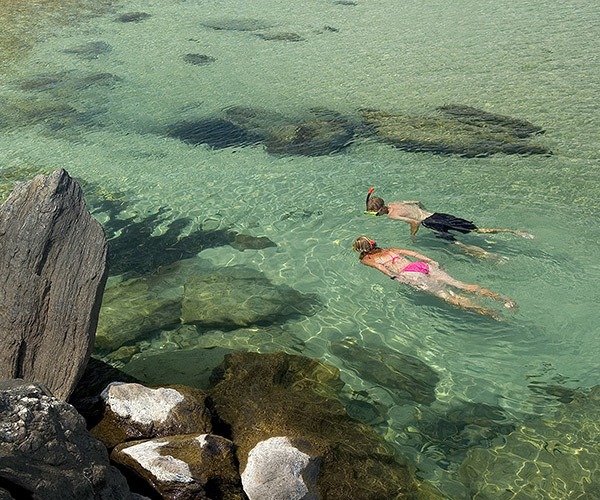 Whether guests choose a stay that is relaxed, or action packed, Lake Malawi has a huge amount to offer any visitor to Malawi. This immense and beautiful ‘Lake of Stars’ that entranced the explorer David Livingstone over 150 years ago has lost none of its allure, and the impressive hotels and lodges now dotted along its shore make it all the easier to succumb to Lake Malawi’s charms in wonderful, relaxed comfort.
Kelly White is Director of the Malawi Travel Marketing Consortium. Malawi Travel Marketing Consortium aims to provide you with the best information to make Malawi your tourism destination.
If you would like to be a guest blogger on A Luxury Travel Blog in order to raise your profile, please contact us.
Whether guests choose a stay that is relaxed, or action packed, Lake Malawi has a huge amount to offer any visitor to Malawi. This immense and beautiful ‘Lake of Stars’ that entranced the explorer David Livingstone over 150 years ago has lost none of its allure, and the impressive hotels and lodges now dotted along its shore make it all the easier to succumb to Lake Malawi’s charms in wonderful, relaxed comfort.
Kelly White is Director of the Malawi Travel Marketing Consortium. Malawi Travel Marketing Consortium aims to provide you with the best information to make Malawi your tourism destination.
If you would like to be a guest blogger on A Luxury Travel Blog in order to raise your profile, please contact us.Did you enjoy this article?
Receive similar content direct to your inbox.


From these pictures I would get the impression that Lake Malawi that is a place of serenity but surely there must be times when the wind whips up the waves? I doubt that it is plain sailing everyday for the Lake’s fishermen.
Yes, there are times of the year that the winds pick up and the swell rises. It can make for some choppy ‘seas’ out on the lake, but the waves at the shore still never reach a level that allows for any surfing.
I was born in Nkhata-bay ,Malawi North(lake shore). Words can not describe how much I miss lake Malawi and seeing mbuna and other fishes. Swimming and fishing was part of activities which kept my childhood busy. I really love Lake Malawi and the friendliness of the beautiful country. Pay a visit and you will never regret. Salute.
I’m thinking that maybe we could make it even more of a Calendar Lake not just 365 miles, long and 52 miles wide – surely there have got to be spots where it is 7 yards deep as well?
Ha! Good thought! Yes, indeed there will be a line of 7 yard depth around most of the Lake!
And does it attract ultraswimmers? Has anybody successfully done a width of 52 miles?
I know that’s a long way but are there any islands where swimmers could break for some rest,
I’m not thinking of taking on that challenge myself but surely there must be people out there tempted by it?
One or two have crossed it (not me either, though!). There are a few islands, but they tend to use the narrower sections and do it without breaks. See the OpenWaterSwimming website for more info.
In fact. very recently, Martin Hobbs completed a solo stage swim of the length of Lake Malawi – a world record for the longest solo swim in a lake and the first person to swim the entire length of the lake.
‘God’s Aquarium’, that’s such a lovely way to describe it. It’s amazing that 80% of the fish in Lake Malawi can’t be found anywhere else in the world, I had no idea. Good job it’s a shark free zone, not just for the sea creatures but the people as well. I wondered what other amenities would be nearby considering how peaceful and natural the area is, so it’s good to know Mangochi Lakeshore and further afield like Chintheche have plenty to offer in terms of hotels and resorts. I like that there’s the best of both worlds here so you could be more adventurous and daring with activities, kayaking, water-skiing, and such, or take more time out to just relax, maybe try snorkelling or stay on the beach for a more chilled out time.
Those beaches simply look great, so appealing. Clever photography, putting a couple of wine glasses in the foreground, that is always going to make the place look even more attractive to a certain type of reader! That’s me by the way.
But seriously, Malawi had never been on my agenda. Reading this post has really opened my eyes to what Malawi has to offer. I also expect that Malawi might not be quite as expensive as some of its neighbours.